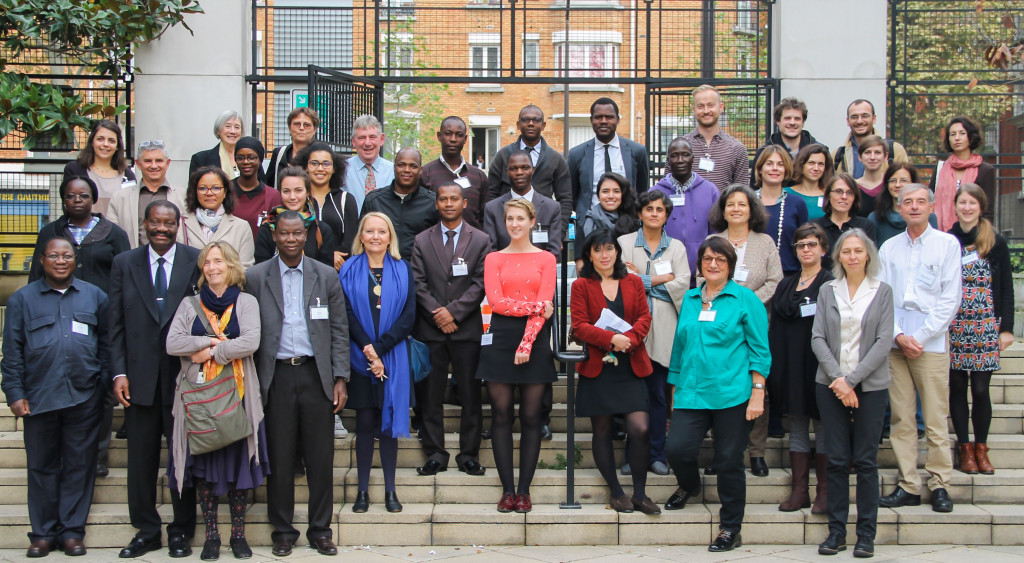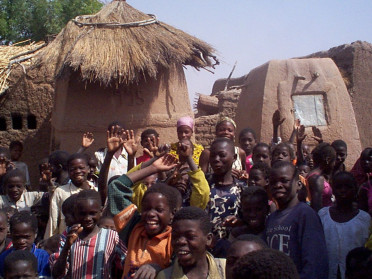Children and family dynamics in sub-Saharan Africa.
International Seminar
From 26 to 28 October 2016 at INED, Paris
The seminar was focus on the family dynamics around children in sub-Saharan Africa, along four major lines:
- the complexity and the dynamics of children’s family environment,
- the influence of family environment on children’s situations and outcomes,
- the normative frameworks and practices linked to parenting and childhood,
- the methodological questions.
Scientific program
Wednesday October 26th
14:00-14:30. Opening of the seminar
· Magda Tomasini (Directrice de l’Ined, France) andOlivia Samuel (Printemps / Université de Versailles St Quentin, France)
14:30-15:30. Keynote presentation
· Who protect the child? by Doris Bonnet (Ceped / IRD, France)
16:00-17:30. Grasping the family environment of children: methodological issues
· Distance or location? How the geographic distribution of kin networks shapes support given to single mothers in urban Kenya / À distance ou sur place ? by Sangeetha Madhavan (University of Maryland, US), Shelley Clark (McGill University, Canada), Malcolm Egan (McGill University, Canada) and Donatien Beguy (APHRC, Kenya)
· Dwellings, domestic units and households: intersecting views on the family environment of children in Mali by Pascaline Feuillet (Ined, France) and Véronique Hertrich (Ined, France)
· From potential to observed kinship resources around children: Census and genealogical data combined with microsimulations by Aurélien Dasré (Cresppa-GTM / Université Paris Ouest Nanterre La Défense, France) and Bruno Masquelier (DEMO / Université Catholique de Louvain, Belgique)
Thursday October 27th
09:00-12:00. The role of extended kin in the life of children
· Childcare practices in the Kumasi metropolis, Ghana by Samuel Asiedu Owusu (University of Cape Coast, Ghana)
· Effects of family structure on child mortality in SADC countries: Insights from Health and Demographic Surveillance System (HDSS) by Stephen Kumwenda (University of Malawi, Malawi)
· Intergenerational care for and by children: Reciprocity and impacts on children’s wellbeing in rural Uganda by Enid Schatz (University of Missouri, US), Janet Seeley (LSHTM, UK) and Flavia Zalwango (Uganda Virus Research Institute, Uganda)
· New living arrangements in three- to four-generation households in Africa and their impacts on the life of children: evidence from observations in Lomé by Kokou Vignikin (URD / Université de Lomé, Togo)
· Children’s family network and dynamics: a longitudinal study in rural Mali by Aurélien Dasré (Cresppa-GTM / Université Paris Ouest Nanterre La Défense, France) and Olivia Samuel (Printemps / Université de Versailles Saint-Quentin, France)
13:30-16:30. The presence of mothers and fathers: to what extent do they matter for children?
· Father’s child care activities and women work status in sub-Saharan Africa by Frank Audrey Tchokonthe (Institute for training and demographics research, Cameroon), Jean Galbert Ongono Olinga (University of Clermont Ferrand I) and Soazic Elise Wang Sonne (United Nations University – Maastricht Economics, Netherlands)
· Do father matter? Paternal absence and child health in northern Tanzania by Anushé Hassan (LSHTM, UK) & al.
· Influence of the child status on schooling and child labor in Cameroon and Senegal by Théophile Armand Fopa Diesse (CARE-IFA / MINEPAT, Cameroun) and Honoré Mimche (IFORD, Cameroun)
· Child fostering in Senegal: Insights from an original longitudinal survey by Philippe De Vreyer (PSL, Université Paris-Dauphine, LEDa-DIAL, France), Sylvie Lambert (PSE / INRA, France) and Karine Marazyan (UMR « Développement et Sociétés », IEDES-P1, France)
· Child migrations and family structures in Mali by Marie Lesclingand (Urmis / Université de Nice Sophia Antipolis, France)
17:00-17:30. Invited lecture
· The child and his kin in the oral storytelling tradition by Cécile Leguy (Lacito / Université Sorbonne Nouvelle Paris 3, France)
Friday October 28th
09:00-12:00. How do school, work and child health interact with family structure?
· Living arrangements and child health in Sub-Saharan Africa by Bilampoa Gnoumou Thiombiano (ISSP / Université de Ouagadougou, Burkina Faso)
· Investigating between- and within-family differences in children’s time allocation to schooling and work in northwestern Tanzania by Sophie Hedges (LSHTM, UK) & al.
· Schooling and family structures in Mali by Marc Pilon (Ceped / IRD, France), Marie Lesclingand (Urmis / Université de Nice Sophia Antipolis, France) and Emma Lherm (Ined, France)
· Gender and evolution of schooling from 1997 to 2008 in Madagascar by Jean Baptiste Tarzan Ndremitsara (Instat, Madagascar), Lina Rakotoson (Université d’Antananarivo, Madagascar) and Arsene Ravelo (Université d’Antananarivo, Madagascar)
· The impact of familial structures on schooling and the children’s activities in rural areas of the highlands in Madagascar by Antonia Verger (Ceped / Université Paris Descartes, France)
13:30-15:30. Questioning the detrimental impact of specific family contexts on children
· Family situations and vulnerability of children by Valérie Delaunay (LPED / IRD, France)
· Who helps single mothers in Nairobi? The role of kin support by Shelley Clark (McGill University, Canada) & al.
· Incarceration and parental relationships: the case of under-age children in the detention facility in Bollé, Mali by Seydou Keita (CNRST, Mali)
· Polygynous marriage and child health in sub-Saharan Africa: What is the evidence for harm? by David W. Lawson (Department of Anthropology / University of California, US)
16:00-16:30. Closing session
· Results and prospects by Claudine Sauvain-Dugerdil (IDESO / Université de Genève, Suisse) and Marc Pilon (Ceped / IRD, France)
Bibliography
A bibliography, prepared for the purpose of the seminar, is shared by means of a Zotero group library.
Scientific committee
Organizing committee

Contact : dype-coord_@_listes.ined.fr
This seminar was organised within the framework of the research unit DEMOSUD and was supported by the Agence nationale de la recherche, as part of the project DyPE-Dynamique de la parentalité et de l’enfance en milieu rural africain (ANR- 12-BSH1-0005-01).

